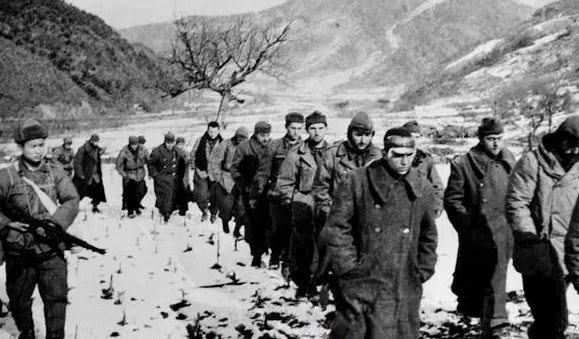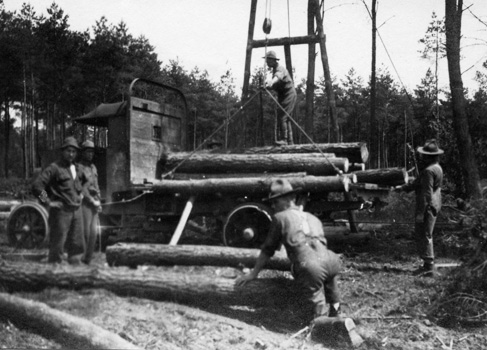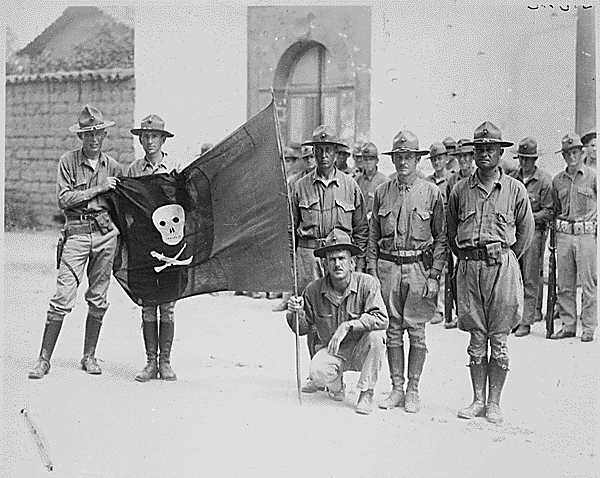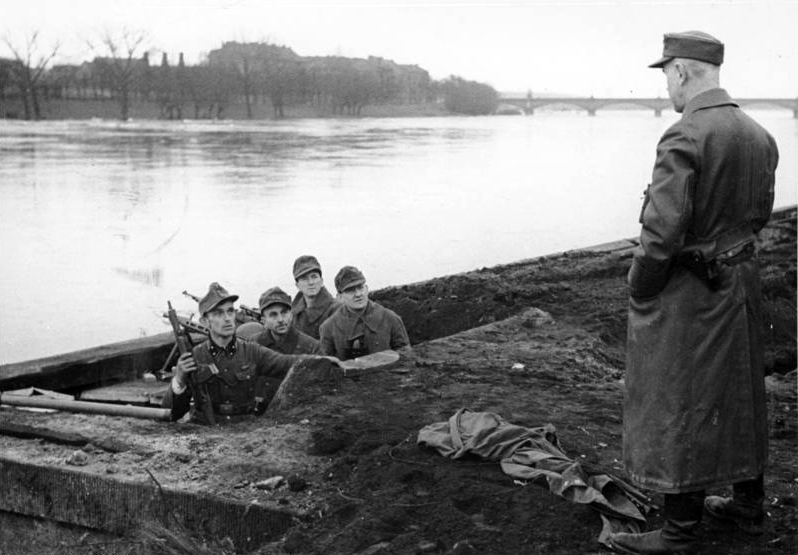Editor’s Note: Sandboxx News presents a World War II series by Kaitlin Oster on the power of hope, letters, and love in seeing us through the terrors and agony of war. You can listen to Kaitlin’s radio interview about the series here or visit her website here.
A prisoner died in his sleep that night. Whether he was taken due to starvation, or cold, or if he just gave up it didn’t matter – and Harold didn’t care to know. Another life was gone. Another solemn ceremony was held and a man was given a memorial.
A stone was placed on an ever-growing pile to symbolize his presence in the POW camp, to show where the earth cracked open and seemingly swallowed up these thousands of men and obscured them from the rest of the world like some kind of alternate universe. Harold shed a tear of remembrance, a pledge that he – along with other prisoners – wouldn’t let the truths of Camp Stalag XVII-B die. A chaplain said words in the name of God, and for the first time, those words felt powerless and small: broken glass against the wall of winter that presided over the camp.
The men piled in for dinner to again find potatoes in hot water with cabbage. Harold peered into the tin bowls and saw what looked like rice, although he knew it wasn’t. Instead, it was maggots that gorged themselves until their very last moments swirled around the liquid.
Related: Letters to Loretta: The American prisoners are nearing their end

“Ah, spud soup… and a maggot bath. How generous.” One of Harold’s peers jeered at the bowls. Each bowl the same, yet the American prisoners still found themselves scrutinizing which one might be the best choice.
“Is there any Jerry butter around for these chunks of bread? This is bread right? Or are these rocks?” a prisoner said.
He held a piece of what looked like bread. His elbow on the table, he delicately balanced the morsel in his palm. Then, he turned his hand over and knocked the bread three times against the table. It was completely solid.
“Come in,” he said. Those within earshot chuckled. The prisoner who knocked tossed the bread along the center of their table. It rolled like a stone until it was intercepted and plopped into the watery remnants of another’s bowl.
“You got spud soup? I got beetle soup,” another said. He lifted his bowl to the others and tilted it downward. They could all see, floating around on top, a beetle.
“Boiled down, at least,” another said.
Related: Letters to Loretta: A series into the power of humanity to persevere during war
Harold chuckled along with the men and forgot for a moment that he was also eating the same spud and beetle soup, that his bread was also like a rock, and that the Jerry butter had the same awful taste it did when he arrived in the POW camp in July 1943. He forgot for a moment there was no parchment to write home to Loretta, and that the Red Cross hadn’t delivered packages in weeks.
He was not yet broken, and he was amazed at how many of the men around him were also holding on to something – whether it was hope, comradery, vengeance – it didn’t matter. They took their licks together, and they ate their awful soup together. They kept each other warm; they died, and they suffered, but they shared it all the same. If he were able to write to Queens, that is what he would talk about.
The night drew on and the prisoners settled into their familiar bunks. The scratchy straw beds felt harder in the winter – but, in exchange for the cold, they at least experienced fewer insects. Harold drew in a deep breath and exhaled mist that illuminated the darkness above him as he stared up at the bottom of another bunk. An occasional crack was heard where the sorry excuse of a fire burned. Bundled and ready for another evening encased in the chill of Austria, the prisoners dozed slowly at first, then all of a sudden, taken by the night.
Read more from Sandboxx News
- Back-saving exosuits may someday be standard-issue gear for troops
- The SR-72 timeline: From initial design to ‘Top Gun’s’ Darkstar
- Ukraine set off 4 explosive devices on a freight train operating on the only major railroad connecting Russia and China
- Operation Olympic Games: The first cyberweapon
- The favorite games of BUD/S instructors that SEAL candidates suffer through



